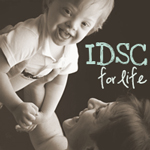http://children.webmd.com/news/20071105/too-many-babies-take-anti-reflux-drugs
Too Many Babies Take Anti-Reflux Drugs
Nov. 5, 2007 -- Too many babies who don't need anti-reflux drugs are being treated with them for normal spitting up and vomiting, new research suggests.
When 44 infants with persistent regurgitation were evaluated for gastroesophageal reflux disease (GERD), only eight met the accepted diagnostic criteria for the condition, even though all but two were already on anti-reflux medications.
Pediatric gastroenterologist Vikram Khoshoo, MD, PhD, says a dramatic increase in referrals for regurgitation issues over the past few years prompted the study, which appears in the November issue of the journal Pediatrics.
"Parents have come to view normal spitting up as a medical condition that requires treatment. But in many cases it is more of a laundry issue than a medical issue," he tells WebMD. "We are replacing Tide and Febreze with Prevacid and Zantac."
Babies and GERD Medication
The prescribing of anti-reflux drugs to infants with presumed GERD has skyrocketed in recent years, with one study showing a sevenfold increase in the use of one class of commonly prescribed acid-reducing medicines used by infants between 1999 and 2004.
This dramatic rise in usage has occurred despite the fact that almost no research has been done on the safety of anti-reflux drugs in children younger than age 1, Eric Hassall, MD, of Vancouver's British Columbia Children's Hospital, tells WebMD.
Hassall says the newer generation of anti-reflux drugs, known as proton pump inhibitors (PPI), has revolutionized the treatment of serious reflux in children, leading to a tenfold drop in surgeries for the condition at his hospital.
But he adds that there is no question that the drugs are prescribed too often for use in babies.
"We know that up to 70% of otherwise completely healthy babies spit up up to four times a day," he says. "As they reach the 7- or 8-month mark this rate drops. And by the time they start walking, less than 5% are still spitting up."
He says parents and pediatricians increasingly label normal vomiting as reflux disease, especially if the baby is also irritable.
Constipation, formula protein allergies, and exposure to cigarette smoke are much more common causes of irritability, as is colic, which generally resolves around age 3 months, he says.
"If you remove these exposures, at least 25% of babies will get better within a few weeks," he says. "They may continue to spit up, but they will be much happier."
He adds that the long-term safety of treating infants with powerful acid-suppressing drugs remains unknown.
While studies have shown the drugs to be generally safe in older children with reflux disease, there is also a suggestion that their long-term use may increase vulnerability to pneumonia and gastric disease.
Reflux Red Flags
Khoshoo says babies who spit up frequently should be evaluated for reflux disease if they are not gaining weight normally, if they have recurrent respiratory symptoms or wheezing, and if they are constantly irritable.
Forceful vomiting is another red flag that should not be ignored.
"If a baby is gaining weight and generally happy, the chances are very good that they have uncomplicated reflux that does not need drug treatment," he says.
When the babies in Khoshoo's study who did not have clinically relevant reflux were taken off anti-reflux drugs, most did not experience an increase in symptoms.
There are things parents can do to minimize normal spitting up. The Children's Digestive Health and Nutrition Foundation has these recommendations:
- Avoid overfeeding. Don't feed the baby again immediately after he spits up. Instead, wait until the next scheduled feeding.
- If a baby is formula fed, thickening the formula with rice cereal may help. But Khoshoo cautions that doing this without reducing formula volume will result in overfeeding, which could make the problem worse. He says a baby normally given 6 ounces of formula during a feeding should be fed 4 ounces of formula thickened with 4 tablespoons of cereal.
- Avoid exposure to cigarette smoke.
- Keep an infant upright for at least 30 minutes after feeding.
Khoshoo also recommends putting babies to sleep on their backs at a 30 to 45 degree angle "to let gravity work for you."






















